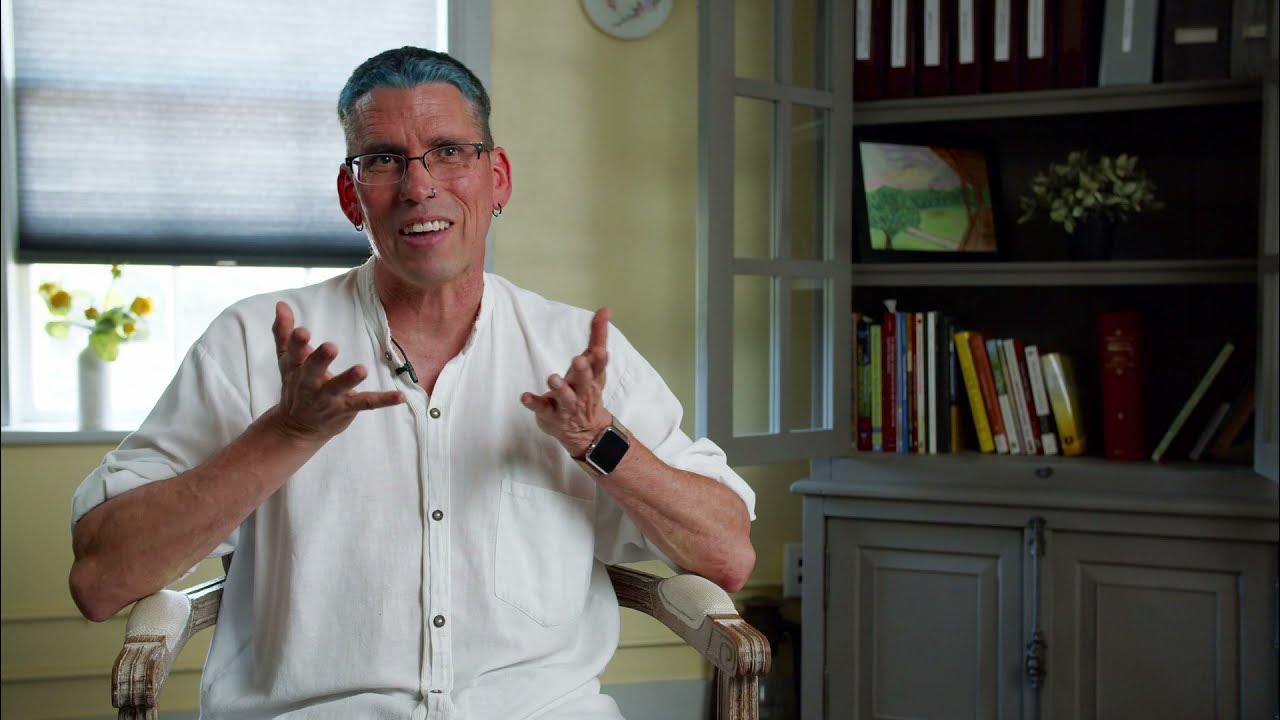Feelings: Handle them before they handle you | Mandy Saligari | TEDxGuildford
Summary
TLDREllen Maloney, an addictions therapist and recovering addict, emphasizes the crucial role of self-esteem in addiction prevention and recovery. She explores the patterns of emotional outsourcing that lead individuals to seek validation through caretaking roles, often resulting in unhealthy relationships and self-harm. Maloney advocates for self-acceptance and the importance of learning to express and manage feelings. Through personal anecdotes and therapeutic insights, she highlights the need for individuals to cultivate a supportive relationship with themselves, suggesting practical steps for fostering self-love and resilience, ultimately challenging the notion of addiction as a chronic relapsing condition.
Takeaways
- 😀 Understanding the core principles of the topic is essential for effective application.
- 📊 Data-driven decisions lead to better outcomes in various scenarios.
- 🔍 Thorough research enhances credibility and informs strategic planning.
- 💡 Innovative thinking can differentiate your approach from competitors.
- 📈 Measuring success through clear metrics is vital for progress assessment.
- 🤝 Collaboration fosters diverse perspectives, enhancing problem-solving.
- 🛠️ Adapting tools and technologies can streamline processes and improve efficiency.
- 🌱 Continuous learning is necessary to stay relevant in a rapidly changing environment.
- 🚀 Setting realistic goals is crucial for maintaining motivation and focus.
- ⚖️ Ethical considerations should always be integrated into decision-making.
Q & A
What is the core concept of self-esteem as discussed in the transcript?
-Self-esteem is described as how an individual feels about themselves, which directly influences how they treat themselves and behave.
How does the speaker define addiction in the context of emotional processes?
-Addiction is seen as a pattern of outsourcing emotional processes to external substances or behaviors, rather than managing feelings internally.
What does the speaker suggest is a common reaction when people learn they are speaking with an addictions therapist?
-People often become defensive, expressing concerns about their own drinking or worries about loved ones, highlighting societal discomfort around addiction.
How does the speaker link childhood experiences to adult behaviors in relationships?
-The speaker argues that children who take on caretaker roles in dysfunctional families may grow into adults who attract high-maintenance partners, perpetuating unhealthy dynamics.
What does the speaker mean by saying giving can be conditional?
-Conditional giving means that an individual’s acts of kindness or support are tied to their self-worth, leading them to seek validation through their actions.
What are some signs that a person may be running on empty in terms of emotional health?
-Signs include feelings of resentment, conditional giving, depression, and anxiety, indicating that the individual is not adequately caring for their own needs.
Why does the speaker emphasize the importance of self-respect in the context of parenting?
-Self-respect is crucial because it enables parents to establish boundaries and communicate effectively with their children, leading to healthier family dynamics.
What practical advice does the speaker give for improving self-esteem?
-The speaker suggests talking positively to oneself, reflecting on childhood images for comfort, and maintaining a gratitude practice to foster self-acceptance.
How does the speaker view the relationship between addiction and chronic relapse?
-The speaker believes that chronic relapse occurs when individuals are not taught how to care for themselves after removing the addictive behavior, emphasizing the need for emotional self-care.
What role does vulnerability play in the discussion about addiction and relationships?
-Vulnerability is portrayed as a central theme, where fear of being vulnerable can lead to addiction and unhealthy relational patterns, reinforcing the need for self-acceptance and emotional honesty.
Outlines

Этот раздел доступен только подписчикам платных тарифов. Пожалуйста, перейдите на платный тариф для доступа.
Перейти на платный тарифMindmap

Этот раздел доступен только подписчикам платных тарифов. Пожалуйста, перейдите на платный тариф для доступа.
Перейти на платный тарифKeywords

Этот раздел доступен только подписчикам платных тарифов. Пожалуйста, перейдите на платный тариф для доступа.
Перейти на платный тарифHighlights

Этот раздел доступен только подписчикам платных тарифов. Пожалуйста, перейдите на платный тариф для доступа.
Перейти на платный тарифTranscripts

Этот раздел доступен только подписчикам платных тарифов. Пожалуйста, перейдите на платный тариф для доступа.
Перейти на платный тарифПосмотреть больше похожих видео

Addiction Stories - Shanna - Suffolk County Community College

Ini Kisah Pengguna Narkoba Tobat | Mimpi Jadi Nyata DAAI TV

How To CONTROL Your Desire? // The SCIENCE Of Addiction

How Does The Biopsychosocial Model Help Us Understand Addiction?

Taking Over 1000 Selfies a Day - What is Selfie Addiction?

Overcoming Addiction - The Root Cause Of Every Addiction
5.0 / 5 (0 votes)
